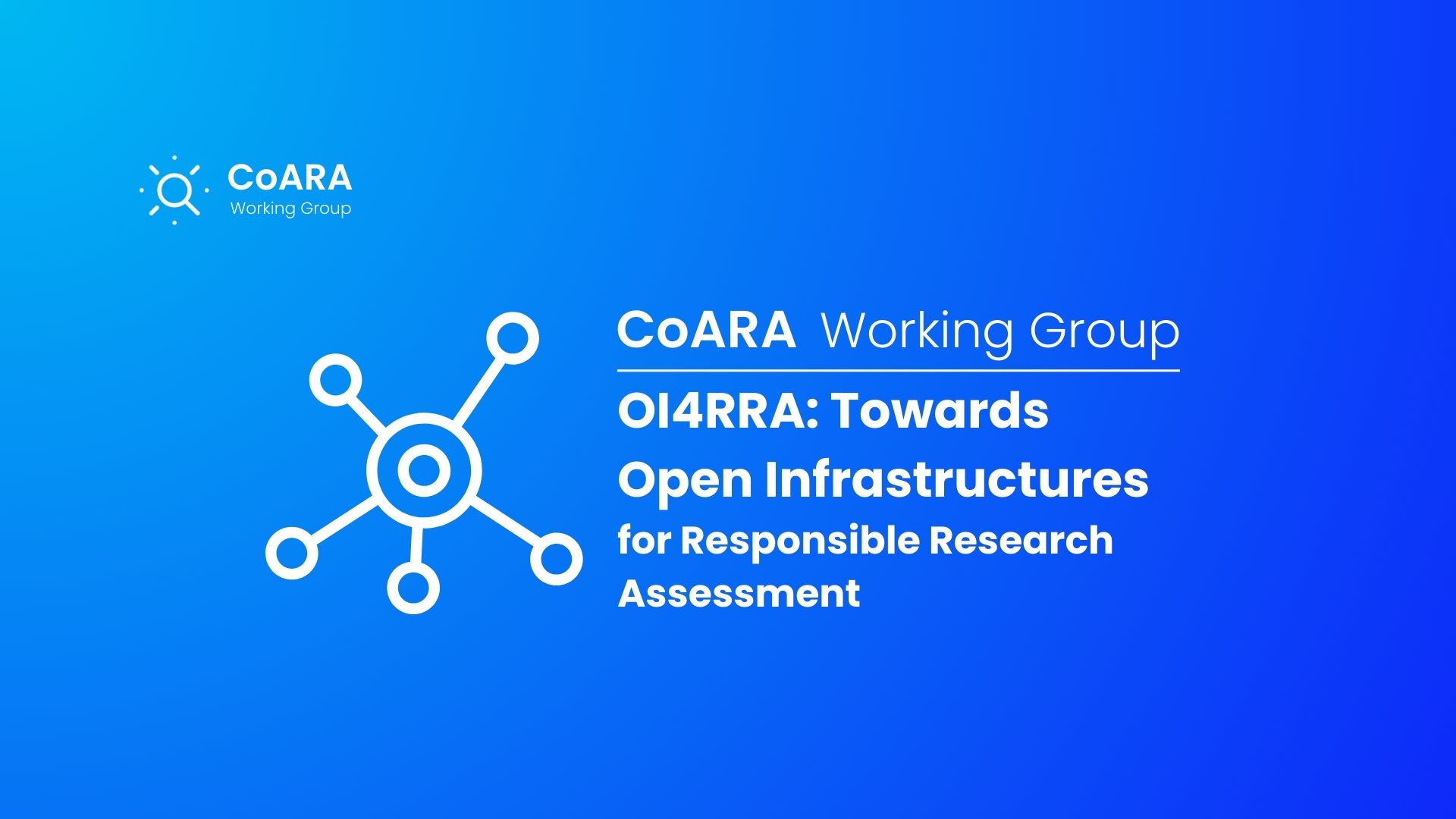CoARA OI4RRA *Publishes a Blueprint* for Open, Connected, and Responsible Research Assessment
*Note that this output has not yet been endorsed by the CoARA Steering Board, but is a draft output that is currently available for members. Outputs will be officially endorsed by CoARA once the Endorsement Framework has been put in place.*
Across the research landscape, institutions struggle with a fragmented ecosystem, operating in silos and using their own language and logic. This disconnection doesn’t just create inefficiencies—it obscures valuable research contributions, complicates reporting, and erodes trust in evaluation outcomes. To address this, the CoARA Working Group Towards Open Infrastructures for Responsible Research Assessment (OI4RRA) proposes a practical response: a four-tier Conceptual Architecture that charts a path from today’s scattered tools toward a coherent, open infrastructure. By focusing on persistent identifiers, interoperable platforms, enriched metadata, and transparent analytics, this framework aims to empower research-performing and research-funding organisations to build a more connected, trustworthy assessment ecosystem.
The Status Quo: Disconnected Evaluation
Many institutions juggle separate CRIS platforms, standalone repositories and closed dashboards, each speaking its own data and system dialect. This fragmentation hides vital contributions, complicates reporting and undermines confidence in assessment outcomes.
A Four-Tier Roadmap to Seamless Integration
The CoARA Working Group Towards Open Infrastructures for Responsible Research Assessment (OI4RRA) presents its Conceptual Architecture, to moving from isolated tools to a unified, open-infrastructure ecosystem:
Tier 0 – Foundation: Establish Reliable Identifiers
- Core function: Mint and integrate DOIs, ORCIDs and RORs; adopt open metadata schemas
- Outcome: A robust backbone of globally unique, machine-readable IDs that every system can trust
Tier 1 – Publishing Platforms: Ensure Accessible Records
- Core function: Equip repositories and open-access journals to publish PID-rich, machine-readable entries
- Outcome: Seamless, standardized data flows into all downstream services
Tier 2 – Metadata Aggregators: Build the Knowledge Graph
- Core function: Harvest, reconcile and enrich records with funding details, classifications and usage metrics
- Outcome: A unified knowledge graph powering context-sensitive, mission-aligned indicators
Tier 3 – Assessment Support: Turn Data into Insight
- Core function: Deploy open analytics engines, indicator APIs and narrative-CV builders
- Outcome: Dynamic dashboards and profiles that highlight openness, collaboration and real-world impact
From Blueprint to Action: Policy Briefs for RPOs & RFOs
To support institutions in implementing this architecture, the report concludes with targeted policy briefs:
- For Research-Performing Organisations
Integrate PIDs, mandate open APIs and embed narrative-CV tools into workflows, evaluation policies and talent decisions. - For Research-Funding Organisations
Standardize grant metadata, require open deposits and co-fund the shared infrastructure that underpins the entire stack.
These briefs translate the four-tier model into clear, actionable steps, so RPOs and RFOs can confidently lead the transition.
Next Steps
- Download the Full Blueprint & Policy Briefs
Zenodo doi 10.5281/zenodo.15297695 - Be Part of the Conversation: Register Now
We are hosting two identical webinars to walk you through the new Conceptual Architecture and answer your questions in real time. Don’t miss this chance to engage with the authors and shape next steps:
- Friday 23 May 2025 • 11:00–12:00 CEST • Click here register!
- Monday 26 May 2025 • 15:00–16:00 CEST • Click here register!
